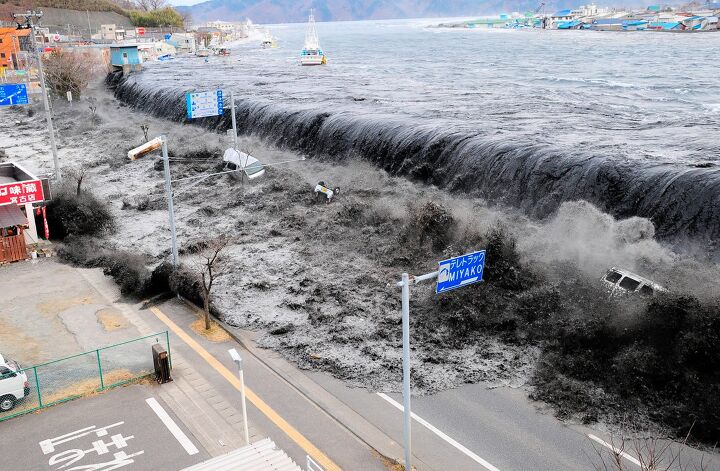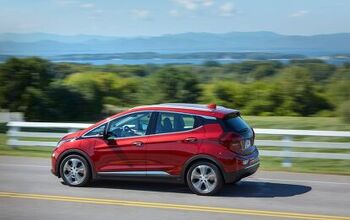Japanese Auto Industry Loses 1.4 Million Units - Nissan Walks Away Unharmed

Today is the day when the Japanese majors announce domestic and global data for June and the half year. A little more than three months ago, a massive earthquake, followed by a devastating tsunami, paralyzed much of Japan’s infrastructure. It could not have come at a more inopportune time. The Japanese auto industry was already suffering from weak markets at home and abroad, paired with a rising yen that destroyed profits from exports. Three months later, how big was the hit?
Japanese and overseas output, June
ManufacturerDomesticChangeOverseasChangeExportsChangeIn June, the Japanese car industry was still battling the effects of the tsunami. However, it had global consequences.
Global output June and YTD
ManufacturerJune globalChangeYTD globalChangeGlobally, the Japanese auto industry lost 13.1 percent of its output in the first half year of 2011, compared to the same period in 2010. Not all of this goes on account of the disaster, the industry had been in a downdraft before. However, the Japanese majors made 1.4 million fewer cars from January to June 2011 than in the first half of 2010.
Company-wise, Toyota was hardest hit in raw numbers. Being the world’s largest automaker with half of its capacity in Japan, Toyota is the biggest target.
Surprisingly, Honda took the highest percentage hit. One thought that with only a quarter of its worldwide production in Japan, Honda would have been spared the worst. But this wasn’t the case. When parts and components are missing, overseas plants stand idle. Toyota also recovers faster. Honda is still 44.5 percent below June 2010
Very surprisingly, Nissan survived more or less unscathed and could raise its half year output by 11.1 percent. Nissan was better diversified, and plain lucky. If its engine plant in Iwaki would be a few miles closer to Fukushima than it already is, Nissan would not look so good. Now, 2011 could become the defining year for Nissan. Nissan has big plans for emerging markets, especially Asia. Some of its plans will be released tomorrow in Beijing. We’ll be there.
Data have been compiled from individual manufacturer releases. Some links require registration.

Bertel Schmitt comes back to journalism after taking a 35 year break in advertising and marketing. He ran and owned advertising agencies in Duesseldorf, Germany, and New York City. Volkswagen A.G. was Bertel's most important corporate account. Schmitt's advertising and marketing career touched many corners of the industry with a special focus on automotive products and services. Since 2004, he lives in Japan and China with his wife <a href="http://www.tomokoandbertel.com"> Tomoko </a>. Bertel Schmitt is a founding board member of the <a href="http://www.offshoresuperseries.com"> Offshore Super Series </a>, an American offshore powerboat racing organization. He is co-owner of the racing team Typhoon.
More by Bertel Schmitt
Latest Car Reviews
Read moreLatest Product Reviews
Read moreRecent Comments
- RHD They are going to crash and burn like Country Garden and Evergrande (the Chinese property behemoths) if they don't fix their problems post-haste.
- Golden2husky The biggest hurdle for us would be the lack of a good charging network for road tripping as we are at the point in our lives that we will be traveling quite a bit. I'd rather pay more for longer range so the cheaper models would probably not make the cut. Improve the charging infrastructure and I'm certainly going to give one a try. This is more important that a lowish entry price IMHO.
- Add Lightness I have nothing against paying more to get quality (think Toyota vs Chryco) but hate all the silly, non-mandated 'stuff' that automakers load onto cars based on what non-gearhead focus groups tell them they need to have in a car. I blame focus groups for automatic everything and double drivetrains (AWD) that really never gets used 98% of the time. The other 2% of the time, one goes looking for a place to need it to rationanalize the purchase.
- Ger65691276 I would never buy an electric car never in my lifetime I will gas is my way of going electric is not green email
- GregLocock Not as my primary vehicle no, although like all the rich people who are currently subsidised by poor people, I'd buy one as a runabout for town.


































Comments
Join the conversation
How does this factor into Nissan's recent gains of the US market share? I don't remember the temporal relationship between the disaster and Nissan's rocketing sales.